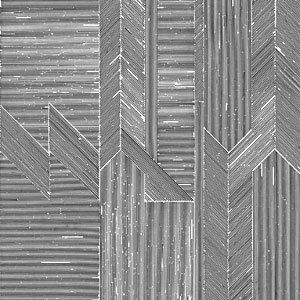Ssaliva RZA EP
The term “bedroom producer” seems to be slipping into degradation as it simultaneously rises into […]

The term “bedroom producer” seems to be slipping into degradation as it simultaneously rises into relative ubiquity. Much like the digital camera craze of the early ’00s (which has only grown exponentially with advent of the iPhone and apps like Instagram), the notion that anyone can easily make music with a few simple and affordable tools irks its share of professionals and veterans as much as it excites people young and old with the inspiration to create. Some of the critics’ points may be valid though; anyone that’s spent a good amount of time scouring the internet for new music has likely found themselves inundated with Bandcamp links, SoundCloud players, and the like from hundreds upon hundreds of fledgling, all-too-similar-sounding artists whose only hopes are for you to download their latest homespun tune. Undeniably, it’s hard to separate the wheat from the chaff, but that’s no reason to demonize a growing group of producers that create more of the music you listen to than you might expect. Case and point: Belgium’s François Boulanger and his new EP as Ssaliva, RZA.
Many things go on within the bedroom of any given individual—much of it personal, private, and downright weird. It’s a place where many people feel the safest and the most comfortable, all of which gives way to any nature of experimentation. This certainly applies to the music created within bedrooms around the world, as those locales act like incubators for the ideas brimming from the vibrant, groggy, or stoned minds of the inhabitants. RZA‘s eight tunes are a gelatinous and unsteady bunch, almost like they were stolen from the incubator a bit early, but their looseness and fuzzy warmth are high on the list of strong suits.
It’s easy to reference artists like Boards of Canada, Lone, or Hype Williams when considering Ssaliva’s obvious similarities, as tracks like “Hobo4030” and “B Adventures” employ the same wavering bounce and hypnotically meandering soundscapes those outfits are known for. His music is syrupy and warped to no end, but at the core of this EP resonates an initial love for dancefloor grooves, which are then surrounded by permutations of ambient music and hip-hop. (The title track alone is a direct reference to the hands-on, DIY, and relatively lo-fi style of Wu-Tang’s lead producer.) Lilting synth melodies drift throughout “SPA82” and “Night Landing,” sounding like they could’ve appeared anywhere on Music Has the Right to Children, but the chunky rhythms and basslines that accompany those prismatic tones come from another world entirely, a world that owes as much to 36 Chambers as it does classic Chicago house. “Trimensional” is a glowing example of Ssaliva’s knack for mixing off-kilter time signatures with lush atmospheres to create music that is enticingly confusing, full of nuance, and bursting with handmade character.
Boulanger produced his new record in the rawest of ways. To its credit, RZA isn’t rendered in the same kind of distant mono as the cassette for Leaving Records that preceded it, Thought Has Wings, but tape does remain an integral part of Ssaliva’s sound palette. Each of the tunes sound like they were initially recorded onto a reel-to-reel before being dubbed over and recorded onto another analog station at three-quarters speed. Some could rightly remain skeptical of the rampant use of the hyper-nostalgic cassette, but Ssaliva proves that—for him—it isn’t just a buzz word or a cute way to release an album. Most songs contain blips of screeching audio or sudden lulls in tempo, like Boulanger flicked the fast foward button or held back one of the reels momentarily while he listened to his music transfer from one tape to another. As such, the RZA EP could not be what it is without its various analog treatments, nor could it be quite the same thing were it not born and created in the bedroom. Boulanger surely labored over this batch of tunes day and night—chopping up samples from his favorite records, listening to the bits on repeat with some coffee or food or maybe a joint, toying with the way it sounds slowed down or running through an effects processor, laying the loops over a beat he made one night a few weeks back, and so on. Music like this grows with time, experimentation, and the ability to fully immerse yourself in the experience of what you’re creating; Ssaliva’s new EP is a perfect example of why the bedroom producer should continue to exist and is currently thriving.

